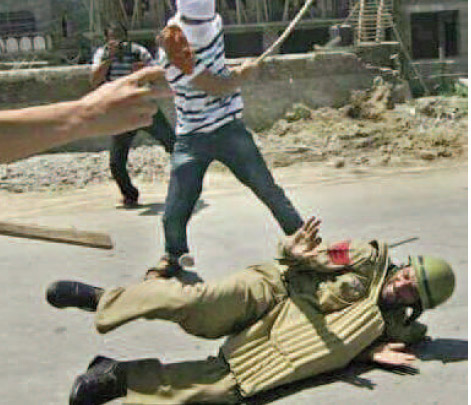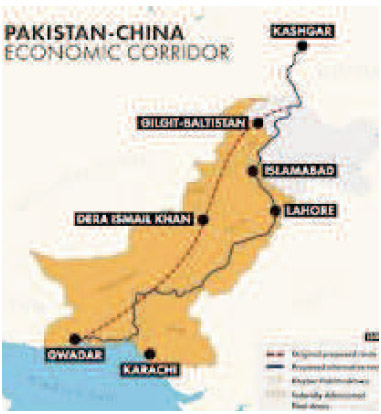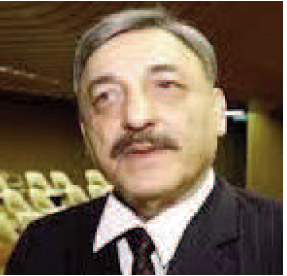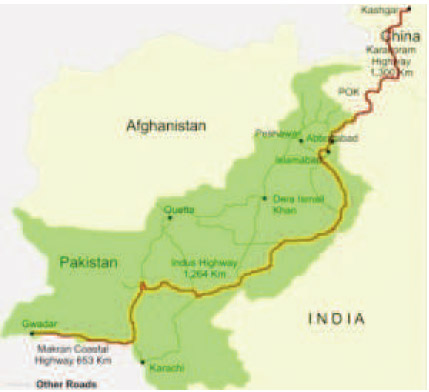Violence in the Valley
 R C Ganjoo
R C Ganjoo
Kashmir in the 1990s'
witnessed gun culture. It
has now
e n t e r e d
into a new
phase of
stone pelting culture.
Stone pelting is an old
tactic to give vent to
anger. The Ideological
conviction of the
present lot of militants
is more deadly today.
Kashmir is
witnessing a trend
where the young boys
are opting for the path
of militancy knowing it
fully well that they are
at the risk of being
killed. But they are
motivated by ISI agents,
according to
intelligence reports.
Former counterinsurgent
Abdul Rashid
Parray alias Billa was killed at his
home in Bandipora district of north
Kashmir on 17th April, 2017 . His son
Fayaz Ahmad Parray directly blamed
Pakistan.
 Kashmir is burning. Pro-Pakistan elements in the Valley
are insulting and killing security forces personnel.
US National Security Adviser Lt
Gen H R McMaster has criticised the
Pakistani leadership for selectively
targeting terror groups. He also said
"Pakistan should use diplomacy and
not "proxies" that engage in violence
to pursue its interests in Afghanistan
and elsewhere"
Kashmir is burning. Pro-Pakistan elements in the Valley
are insulting and killing security forces personnel.
US National Security Adviser Lt
Gen H R McMaster has criticised the
Pakistani leadership for selectively
targeting terror groups. He also said
"Pakistan should use diplomacy and
not "proxies" that engage in violence
to pursue its interests in Afghanistan
and elsewhere"
The surge in locals joining
militancy began after the killing of Hizbul Mujahideen's poster boy
Burhan Wani in an encounter in
south Kashmir on July 8 last year.
According to reports, the main
affected areas from where youths
were reported to be missing included
Shopian, Kulgam, Pulwama and parts
of Awantipora in south Kashmir and
certain areas of downtown Srinagar .
Questions are being raised why
militancy in Kashmir erupts with intervals. It has been noticed as and
when elections are announced to run
institutions under democratic
system. Regional political parties
skilfully exploit the sentiments of
people in the name of Kashmir issue.
According to Home Ministry's
report, Pakistan is responsible for
change in its tactics and resorting to
disrupting law and order in Kashmir
by infiltration and fomenting unrest
through radicalization of Kashmir
Muslim youth. Pakistan through the
means of social media whips up
religious sentiments of Kashmiri youth, spreads hatred against India
and security forces, including the
police. In 2016, 364 infiltration
attempts were made and 112
terrorists infiltrated into Jammu and
Kashmir. The year 2016 witnessed a
54.81 per cent increase and a 110.25
per cent increase in the number of
terrorist incidents and fatalities of
security forces in comparison to the
corresponding period of 2015.
Another alarming
situation is of illegal
settlement of Rohingya
refugees in the state. "As
they are dependent on
aid and relief from the
government and NGOs
and don't have any
means of livelihood, they
could become a tool in
the hands of antinational
elements which
will prove disastrous for
the security of the state,"
according to an
intelligence source. After
entering India, the
refugees covered
hundreds of miles and
took shelter in Jammu.
The state government
has said the Rohingya
refugees were not
brought here under a
well-thought-out plan. "As many as
5,743 Burmese (Rohingyas) are
staying in the state. They have
entered the state on their own and
are staying
at various places in the districts of
Jammu and Samba," stated Chief
Minister Mehbooba Mufti in the
Legeslative assembly . Out of the
total Rohingya refugees living in
Jammu district- 4,912 are having
United Nations High Commissioner
for Refugees (UNHCR) cards and 186
members are without them," said an
official statement.
China's strategy for GB
 China has entered in Gilgit -
Balistan (GB) with a well conceived
plan. It wants to keep its military
presence in Pakistan under the
pretext of of strategic China-Pakistan
Economic Corridor (CPEC) project.
China also wants its military
existence to counter effectively the
Muslim separatists , operating from
the tribal areas of Pakistan for almost
a decade carrying out cross-border
activities in trouble- torn Xinjiang ,
autonomous region in China. Beijing is setting up its military bases in
FATA (Federally Administered Tribal
Areas) or the Northern Areas (Gilgit
Baltistan). In exchange of this
strategic plan Pakistan wanted China
to Build a naval base at Gwadar in
Baluchistan .
China has entered in Gilgit -
Balistan (GB) with a well conceived
plan. It wants to keep its military
presence in Pakistan under the
pretext of of strategic China-Pakistan
Economic Corridor (CPEC) project.
China also wants its military
existence to counter effectively the
Muslim separatists , operating from
the tribal areas of Pakistan for almost
a decade carrying out cross-border
activities in trouble- torn Xinjiang ,
autonomous region in China. Beijing is setting up its military bases in
FATA (Federally Administered Tribal
Areas) or the Northern Areas (Gilgit
Baltistan). In exchange of this
strategic plan Pakistan wanted China
to Build a naval base at Gwadar in
Baluchistan .
Both China and Pakistan have
crushed the legitimate concerns
raised by the people in GB . The
locals here feel Pakistan and China
are exploiting their resources.
Several local NGO delegations and
intellectuals are constantly voicing
these concerns in the United Nation
Human Right sessions.
Pakistan is trying to silence the
voice of GB as independent region.
Security agencies have been given
powers under the National Action
Plan (NAP) to keep people in check.
The Human Rights Commission of
Pakistan (HRCP), in its latest report
on Gilgit Baltistan, has demanded the
government to stop security agencies
from allegedly exploiting antiterrorism
laws against youths and
political activists. Former HRCP chief
Asma Jahangir, who released the
findings of the report in Islamabad,
asked the federal government to
empower democratic forums of Gilgit
Baltistan, appoint judges from
among the locals, and address the
issues of internally displaced persons
(IDPs).
 Wahajat Hassan
According to Senge H. Sering, a
scholar based in Washington DC,
"China has a huge and long-term
presence in Gilgit-Baltistan and is
building extensive road, bridge
and telecom networks to
sustain it. The drivers
compelling China to develop
Karakoram Corridor are
diverse and mainly pertain to
its economic, strategic and
political ambitions."
Wahajat Hassan
According to Senge H. Sering, a
scholar based in Washington DC,
"China has a huge and long-term
presence in Gilgit-Baltistan and is
building extensive road, bridge
and telecom networks to
sustain it. The drivers
compelling China to develop
Karakoram Corridor are
diverse and mainly pertain to
its economic, strategic and
political ambitions."
Pakistan has been trying to
declare GB its new province.
But its move has vehemently
been opposed by India . On
March 23, 2017 British
Parliament condemned
Pakistan's plans to declare
Gilgit-Baltistan its fifth
Province. The motion says
"Gilgit-Baltistan is a legal and
constitutional part of the state
of Jammu & Kashmir, India, which is
illegally occupied by Pakistan since
1947."
Abdul Hamid Khan ,Balwaristan
National Front President (BNF) while
condemning the attempts to merge
Gilgit Baltistan with Pakistan has said
" the attempt amounts to deliberate
violation of UNCIP as well as against
the will of the people after the
passage of 67 years of deprivation under the occupation of Pakistan in
the name of J&K dispute."
 Members of the European
Parliament (MEP) in a conference titled 'Opposition against CPEC in
Pakistan' held at the European Parliament in Brussels on March 1,
2017 highlighted the fact that the
projects under the CPEC were being
built largely against the will of the
locals of Baluchistan, Sindh and
Gilgit-Baltistan. The speakers said
that on the pretext of the CPEC, there
was a deliberate move by Pakistan to
re-settle Punjabis and Chinese
nationals in the region.
Members of the European
Parliament (MEP) in a conference titled 'Opposition against CPEC in
Pakistan' held at the European Parliament in Brussels on March 1,
2017 highlighted the fact that the
projects under the CPEC were being
built largely against the will of the
locals of Baluchistan, Sindh and
Gilgit-Baltistan. The speakers said
that on the pretext of the CPEC, there
was a deliberate move by Pakistan to
re-settle Punjabis and Chinese
nationals in the region.




 R C Ganjoo
R C Ganjoo Kashmir is burning. Pro-Pakistan elements in the Valley
are insulting and killing security forces personnel.
Kashmir is burning. Pro-Pakistan elements in the Valley
are insulting and killing security forces personnel.
 Wahajat Hassan
Wahajat Hassan